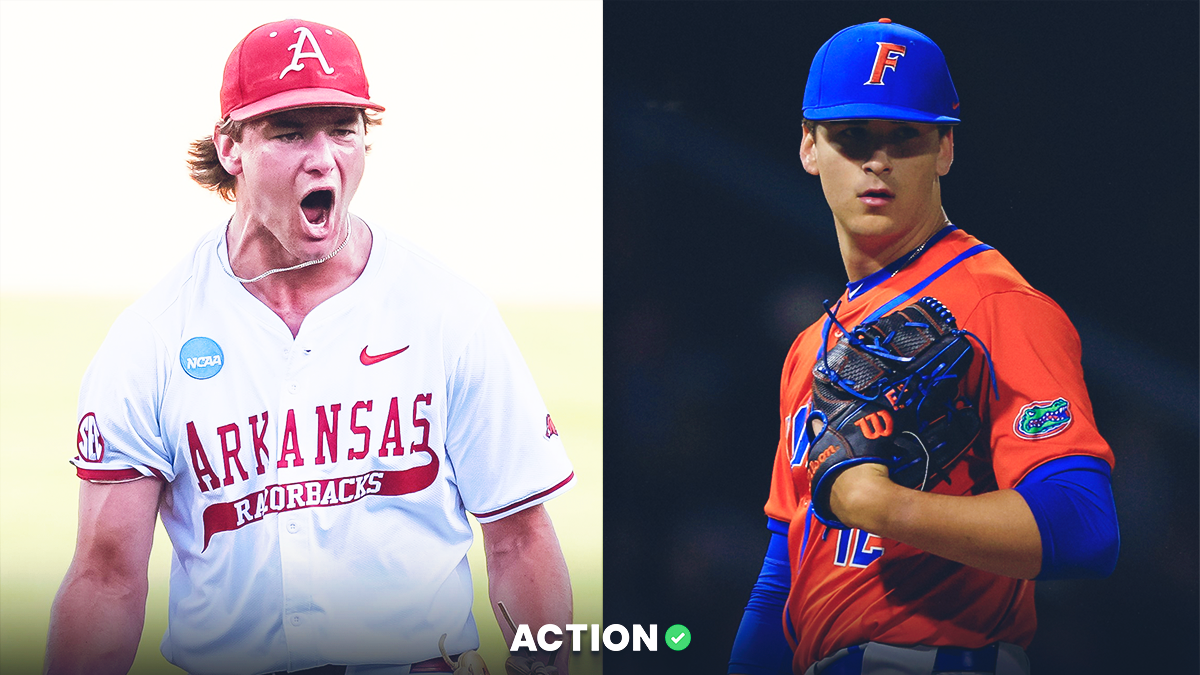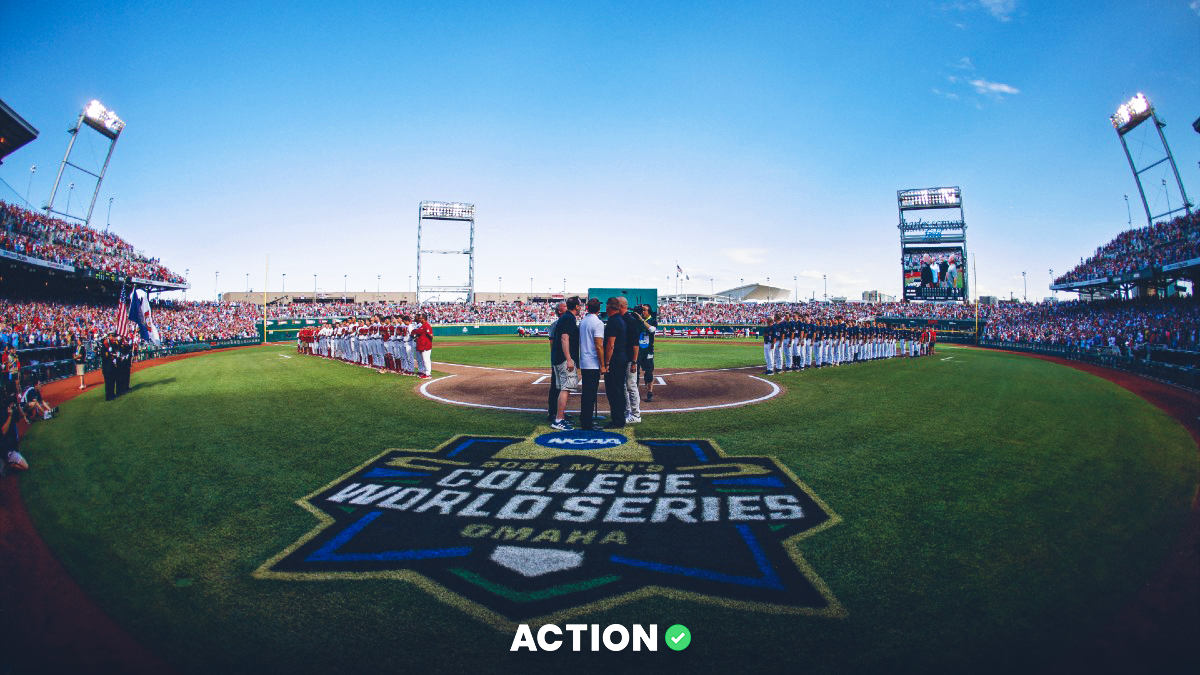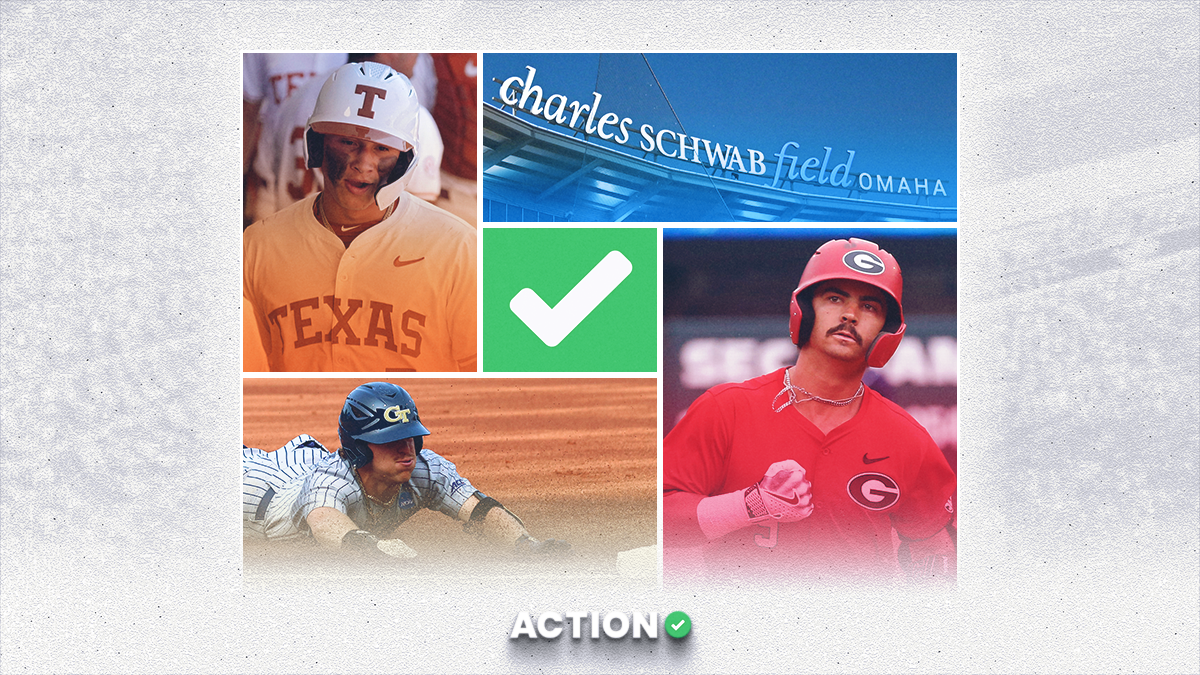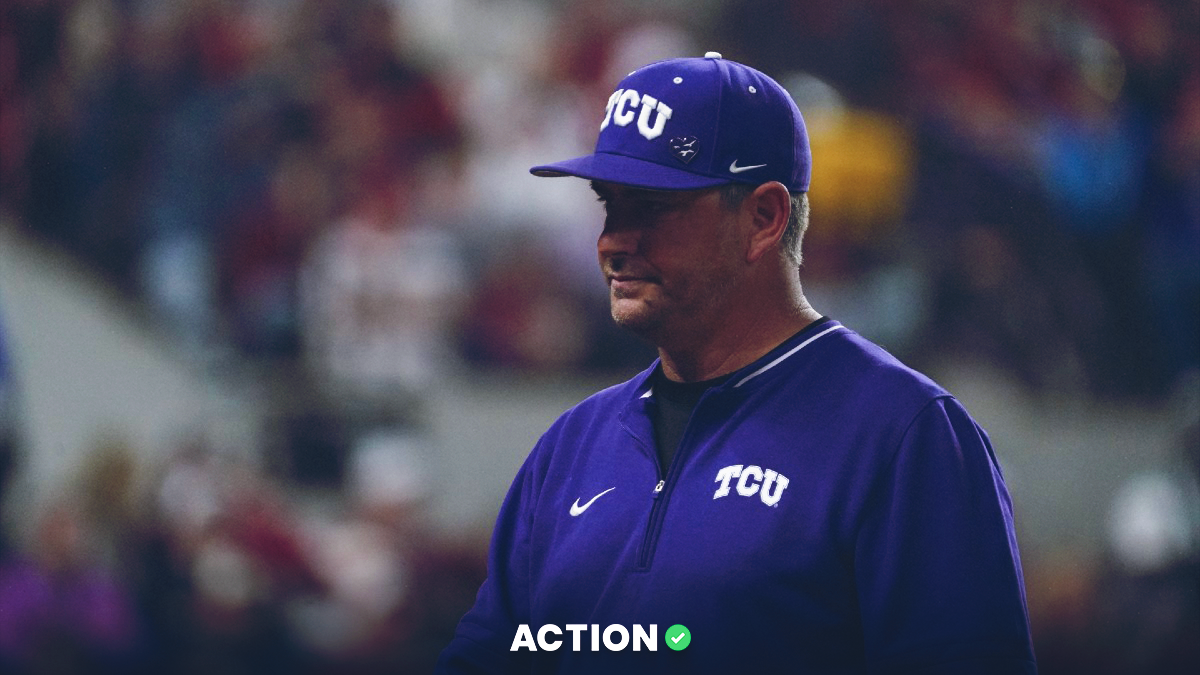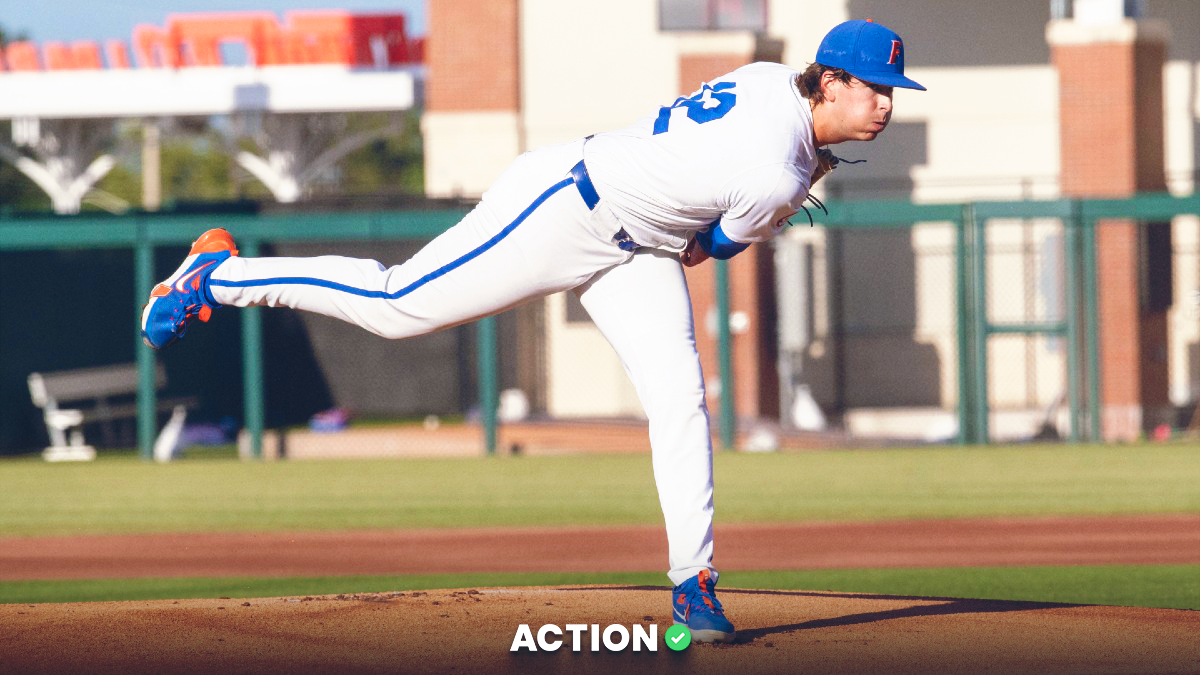OMAHA, Neb. — The first day of the 2024 College World Series brought something for everyone.
Aided by windy weather, the first game between Virginia and North Carolina was an absolute pitchers' duel that ended with a final score of 3-2 thanks to a walk-off liner by Tar Heels center fielder Vance Honeycutt.
The second proved to be a high-flying slugfest. Despite the windy weather — which actually died down moderately as the game progressed — No. 1 overall seed Tennessee survived an upset bid against Florida State, winning, 12-11, on a walk-off of its own.
The duality of baseball at its peak.
“Certainly, the wind blowing in played a factor for both teams,” Virginia head coach Brian O’Connor said.
Spacious Charles Schwab Field assuredly had an impact on the Cavaliers, who play their home games at the launchpad of Disharoon Park.
The Hoos lead the College World Series field in BaseRuns — an estimate of how many runs a team would be expected to score given their underlying offensive performance — at 9.53 and are one of only two teams in Omaha that own a mark over 9.0 (Texas A&M, 9.25.)
But instead of an offensive explosion, the teams combined for 21 fly balls and went a combined 3-of-18 with runners in scoring position.
“A lot of them were fly balls that would have been [home runs] on any day,” O’Connor said. “I thought [first baseman Henry Ford] squared him up. I thought he drove the baseball, and it just died and didn't reward him.
“You have to make an adjustment as an offensive ballclub, and it's got to be more line drives. Anything in the air just isn't — you're not going to hit it over anybody's head.”
The fly balls ended up benefiting the Tar Heels instead, and closer Dalton Pence — a fly-ball pitcher — took advantage by not allowing a single run or hit in 3 1/3 innings.
Similarly, UNC reliever Matt Poston, who took over in the fifth inning for starter Jason DeCaro, gave up just one run on one hit in 1 2/3 innings.
“They get a lot of fly balls, and that can be a big thing in this park,” North Carolina head coach Scott Forbes said. “A lot of fly balls, and they die here a lot of times.”
The opposite was true in Game 2.
The Seminoles and Volunteers combined for 23 runs on 31 hits and smashed the only three home runs of the day.
That includes Tennessee second baseman Christian Moore crushing a 440-foot dinger on a rope to dead center, where the wall sits at 408.
But Moore did much more than that. He became the second player in Men's College World Series history to hit for the cycle, doing so by the sixth inning. That approach — getting on base and scoring by any means necessary — was key for the Vols.
“We've played in some big parks this year, like the Rangers' stadium down in Texas," said Tennessee first baseman Blake Burke, who picked up a game-tying single in the bottom of the ninth. "We try to find ways to score other than the long ball."
With one game staying well under the total and one flying over, there's at least one key takeaway: Be cognizant of the wind, but don’t let it be the only thing that defines your strategy.





